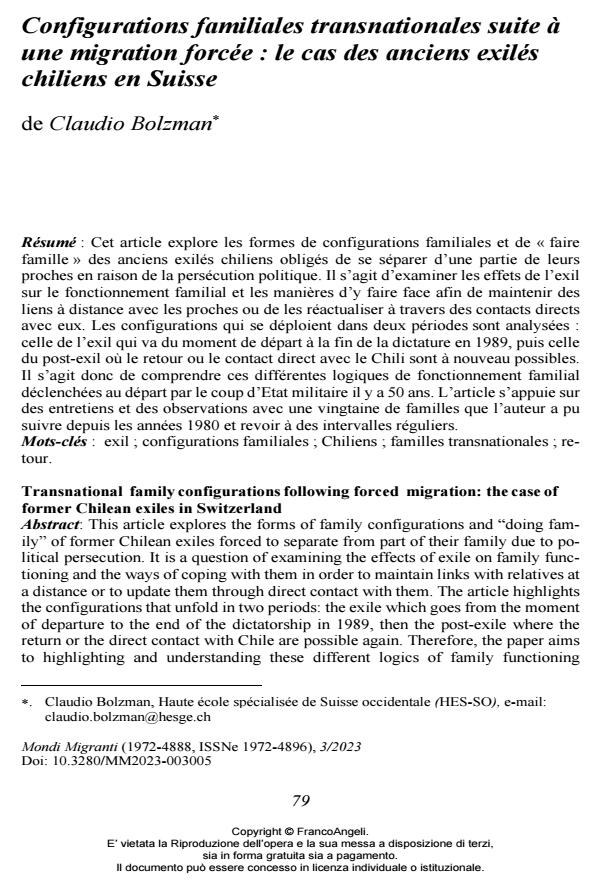Transnational family configurations followingorced migration:the case of former Chilean exiles in Switzerland
Journal title MONDI MIGRANTI
Author/s Claudio Bolzman
Publishing Year 2023 Issue 2023/3
Language French Pages 19 P. 79-97 File size 265 KB
DOI 10.3280/MM2023-003005
DOI is like a bar code for intellectual property: to have more infomation
click here
Below, you can see the article first page
If you want to buy this article in PDF format, you can do it, following the instructions to buy download credits

FrancoAngeli is member of Publishers International Linking Association, Inc (PILA), a not-for-profit association which run the CrossRef service enabling links to and from online scholarly content.
This article explores the forms of family configurations and “doing family” of former Chilean exiles forced to separate from part of their family due to po-litical persecution. It is a question of examining the effects of exile on family functioning and the ways of coping with them in order to maintain links with relatives at a distance or to update them through direct contact with them. The article highlights the configurations that unfold in two periods: the exile which goes from the moment of departure to the end of the dictatorship in 1989, then the post-exile where the return or the direct contact with Chile are possible again. Therefore, the paper aims to highlighting and understanding these dif-ferent logics of family functioning initially triggered by the military coup 50 years ago. The article is based on interviews and observations with about twenty families that the author has been able to follow since the 1980s and see again at regular intervals.
Keywords: exile ; family configurations ; Chileans ; transnational families ; return.
Claudio Bolzman, Configurations familiales transnationales suite à une migration forcée : le cas des anciens exilés chiliens en Suisse in "MONDI MIGRANTI" 3/2023, pp 79-97, DOI: 10.3280/MM2023-003005